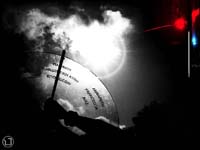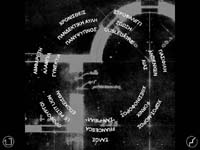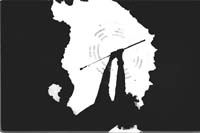
Environmental and media artist, poet, architect. M.Sc. Architecture (Columbia University), M.Sc. Visual Studies (M.I.T.), Ph.D. (cand.). Research Fellow at the Center for Advanced Visual Studies, M.I.T. (1991-1994). He lectured on Environmental Art issues at M.I.T. and Massachusetts College of Art. His artistic work (Ruin Architectures) was presented in one-man and group exhibitions in Boston, USA and Greece. He participated in international conferences on art and technology, and has published articles on Ruin Architectures and contemporary art in periodicals such as Sima, Technologia, Buildings. http://w4u.eexi.gr/~kouros
Brief Description
The interactive art cd-rom "Pasiphili-Pandektiki Avli-Epochesthe, a mnemonic architecture project" explores the relation between architecture, memory and gaze. It involves the physical and mental construction of memory theatres that communicate the ideas of poetic ruin habitation. In the heart of the project lies a virtual architectural machine which, by means of revolving wheels and out of a corpus of 21 words produces 343 different combinations of three-word phrases. By rotating the wheels and by selecting specific phrases each time, the viewer creates his own poetic environment and navigates inside. Words guide him into memory chambers, where meaning associations are possible through different levels of representation: filmic phrases, series of images, drawings and text-fragments.
The cd-rom was part of Panos Kouros' exhibition that was realized at the Ileana Tounta Contemporary Art Center in January 1998. The project used space, light, language and the human body as plastic expressive material. It encouraged the viewer to participate and create his own poetic world in both real space and a computer-mediated environment.
The experience of ruin habitation is a major theme of the work. Ruins are not a matter of the past, but a vision for the future; not the archaeological traces of monumental architecture, but an existential continuum of fragments that suggest new conditions of poetic living. Associated with the notion of "negative way", they imply a gradual dispossession from things and the self. This endless process of abandoning intimacy, familiarity, belonging, "house" - i.e. architecture - is at the center of the rich metaphysic traditions of eastern and western culture, and is always related to an ascending consciousness. In its own manner, the work addresses notions of foreign place, exile (exile island and urban hotel as places that receive strangers), amity and greeting (the greeting gesture in classical Greek funerary stelae)

